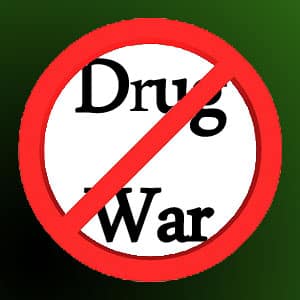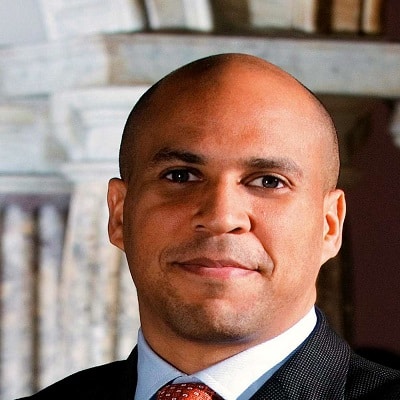 This evening, the U.S. Senate confirmed President Obama’s nomination of Michael Botticelli to become the next Director of the White House Office of National Drug Control Policy (ONDCP), a position informally known as “drug czar.” Botticelli has served as Acting Director since March 2014 following the resignation of former drug czar R. Gil Kerlikowske. Botticelli previously served as ONDCP’s Deputy Director. Before joining ONDCP, Botticelli spent nearly two decades overseeing substance misuse programs at the Massachusetts Department of Public Health.
This evening, the U.S. Senate confirmed President Obama’s nomination of Michael Botticelli to become the next Director of the White House Office of National Drug Control Policy (ONDCP), a position informally known as “drug czar.” Botticelli has served as Acting Director since March 2014 following the resignation of former drug czar R. Gil Kerlikowske. Botticelli previously served as ONDCP’s Deputy Director. Before joining ONDCP, Botticelli spent nearly two decades overseeing substance misuse programs at the Massachusetts Department of Public Health.
“Michael Botticelli represents, in many ways, a significant improvement on all his predecessors as drug czar,” said Ethan Nadelmann, executive director of the Drug Policy Alliance. “It’s not just that he comes from a public health background but that he seems truly committed to advancing more science-based and compassionate drug policies where the politics allow. What he most needs to do now is shed the political blinders that impel him both to defend marijuana prohibition and close his eyes to highly successful harm reduction measures abroad.”
Under his tenure as Acting Director of ONDCP, advocates have praised Botticelli for supporting improved access to naloxone – a drug that rapidly reverses opiate overdoses – and promoting “Good Samaritan” laws that provide protection from drug possession charges when an overdose witness seeks medical attention.
Advocates also praise Botticelli for leading an effort by the Obama administration to promote medication-assisted treatment. Last week, Botticelli announced a new policy barring federal funding for drug courts that do not allow participation in medication-assisted treatment programs. Despite overwhelming evidence supporting the efficacy of methadone and other forms of medication-assisted treatment, patients and providers face numerous legal restrictions and stigma, leaving many people who could benefit from this treatment unable to access it.
In public remarks over the last few months, Botticelli has emphasized the need to expand treatment to people who need it, reduce stigma associated with drug use, and reduce collateral consequences following a conviction. On Friday, Botticelli became the first drug czar to express support for allowing a voter-passed ballot measure that legalizes marijuana possession to take effect. His public remarks were consistent with the Obama administration’s position that the District of Columbia should be able to implement a ballot measure passed by 70 percent of voters last November that legalizes possession and cultivation of small amounts of marijuana despite a congressional rider that some Republican members of Congress intended would block the measure from taking effect.
Federal law precludes ONDCP from advocating for marijuana legalization and Botticelli has maintained the Obama administration’s opposition to it. However, in a congressional hearing last year Botticelli clarified that “it has never been (ONDCP’s) position to arrest people who have been using medical marijuana.” Advocates point to Botticelli’s public remarks on these issues as a sign that his leadership at ONDCP may be guided more by science and reason than by his predecessors.
DPA urges Botticelli to prioritize these four policy innovations:
- ONDCP should do more to raise awareness of the harms of criminalization of people who use drugs, and the relationship between punitive drug laws and their disproportionate impact on communities of color. At the heart of stigmatization and discrimination of people who use drugs, and former users, is the lasting harm caused by a criminal record and criminalization. ONDCP should promote programs that divert people suspected of low-level drug law violations away from the criminal justice system, such as the Law Enforcement Assisted Diversion (LEAD) model. The nation’s drug policy office should also be addressing and articulating policy relevant to the growing number of states that have decriminalized or legalized marijuana.
- ONDCP should do more to promote the provision of naloxone – medication that quickly reverses heroin and opioid overdoses – directly to people at-risk of experiencing or witnessing a heroin or opioid overdose and urge Congress to fund community-based access. ONDCP should find ways to reduce the price of naloxone and make it available without a prescription.
- Although ONDCP opposes the federal funding ban on syringe services, the drug czar should do more to advocate for its repeal. Despite exhaustive scientific evidence that shows the effectiveness of syringe services to protect against the transmission of HIV and hepatitis C, Congress reinstated a ban in 2011 on states using federal dollars for these programs.
- ONDCP should set clear statutory goals for reducing the harms associated with both drug misuse and the war on drugs. ONDCP should ensure that federal drug laws are reducing the number of people who are entering the criminal justice system, reducing the number of people contracting HIV and hepatitis C, reducing the number of overdoses and reducing the number of people denied a future as a result of a drug law violation on their record.
“Botticelli has already shown leadership in making U.S. drug policy more health-focused, but there’s a lot more he should be doing,” said Bill Piper, director of national affairs of the Drug Policy Alliance. “It makes no sense to talk about treating drug use as a health issue while continuing to support the criminalization of people who use drugs.”
Source: Drug Policy Alliance – make a donation



